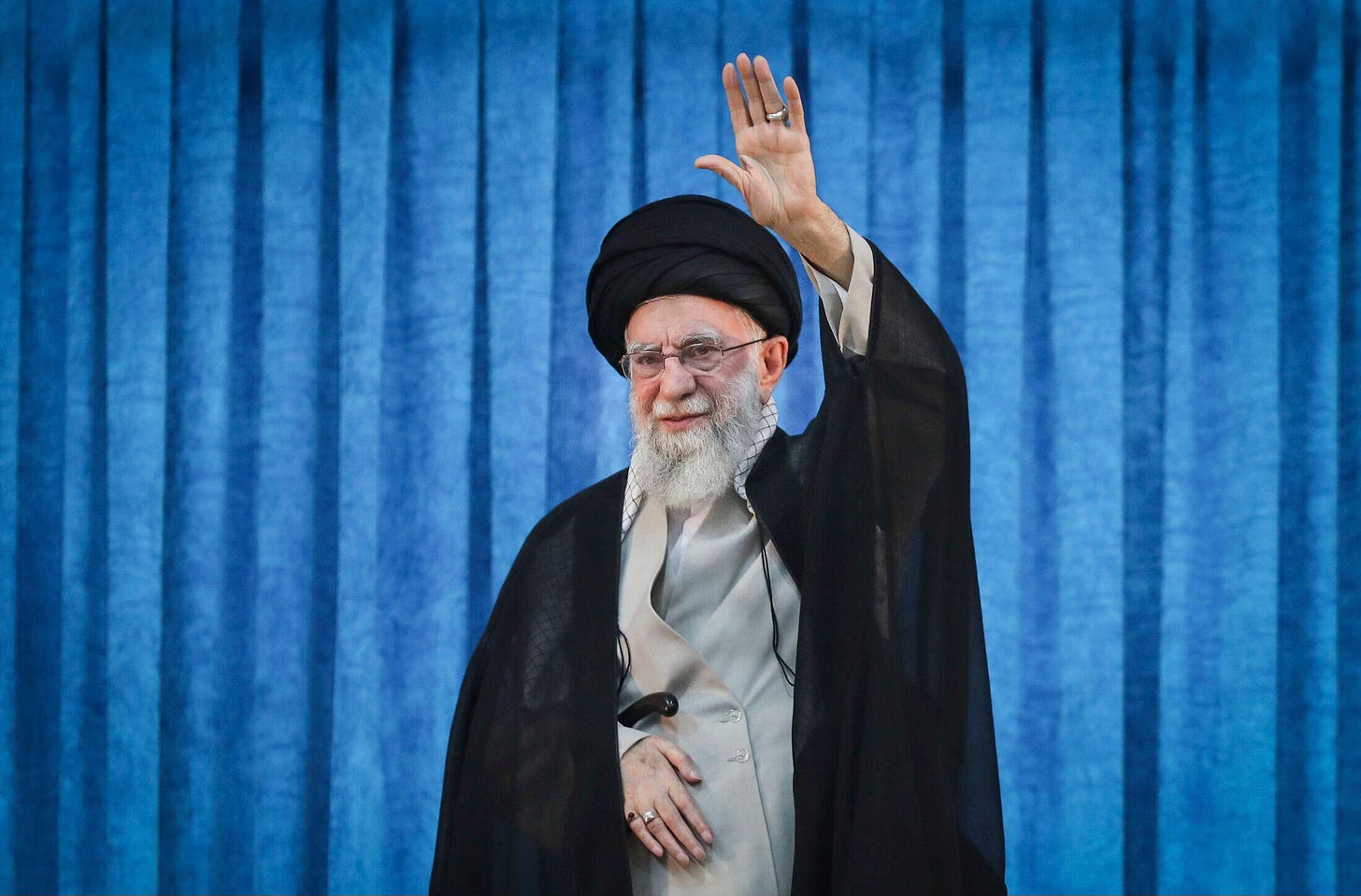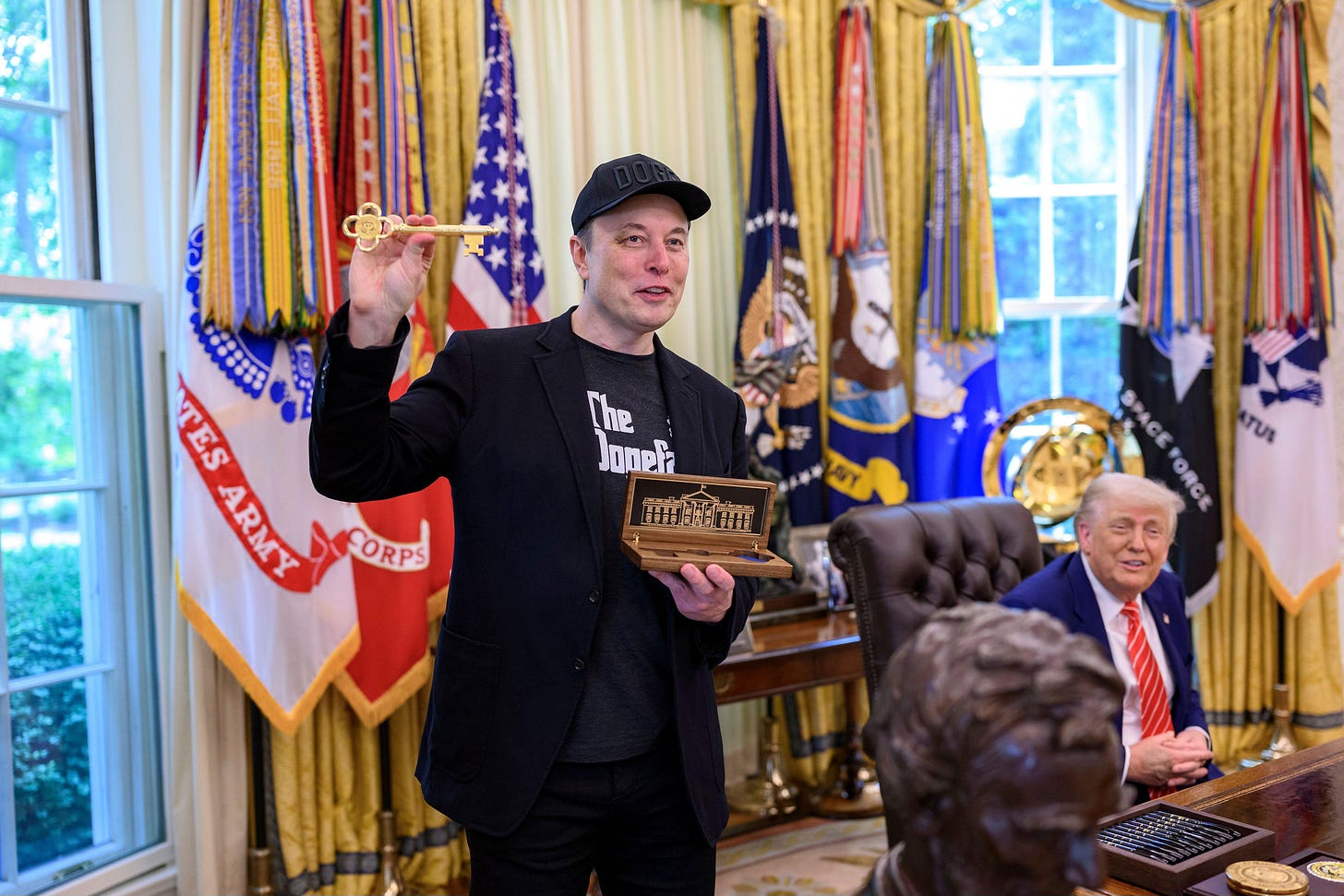“Who are you to tell us whether we should have a nuclear program or not?” declared Iran’s supreme leader today, in comments directed at President Trump that suggest Tehran is on the brink of rejecting the US proposal for a nuclear agreement.
In his first public remarks since Washington proposed the outline of a deal over the weekend, Ayatollah Ali Khamenei labelled the Trump administration “rude and arrogant”, effectively rejecting its key demand: “We won’t stop enriching uranium”, he insisted. To do so would be “100 percent” against Tehran’s interests.
Khamenei labelled it “useless” for Iran to build nuclear power plants without being able to enrich uranium over the long-term, framing the US proposal as an attempt to obstruct the country’s self-reliance.
Enrichment of Uranium-235, which is used to make both nuclear reactor fuel but also nuclear weapons, is at the heart of the five recent rounds of tense negotiations between the US and Iran, mediated by Oman.
Iran says it is enriching uranium for peaceful civilian purposes while the US believes this is a cover for building nuclear weapons. According to a UN nuclear watchdog, Iran has increased its stockpile of uranium enriched to near-weapons grade by about 50 per cent since February.
Washington is still awaiting a formal Iranian response to its draft proposal for a new nuclear deal, presented to Tehran by the Omani foreign ministry on Saturday.
It’s unclear exactly what the US proposal demands of Tehran. Some reports, citing two anonymous officials, suggest that Washington has proposed allowing Iran to temporarily continue enriching uranium at low levels under an interim deal, before later halting it. Other reports indicate that it has called for Iran to completely halt the the enrichment of uranium on domestic soil, instead relying on a regional consortium for supplies to power its civil nuclear program.
Khamenei did not say that Iran is halting negotiations with the US and his public comments today shouldn’t be taken completely at face value since they will be part of a wider negotiating tactic. Even so, they hardly inspire confidence in the progress made during these five rounds of negotiations. Which begs the question: what happens if the talks break down?
These negotiations, proposed by Trump, were an attempt by the US President to prioritise diplomacy over the military action, which Israeli Prime Minister, Benjamin Netanyahu, and some of Trump’s own top officials, were pushing for him to take.
The possibility of Israeli or joint US-Israeli strikes on Iran’s nuclear sites looms large if the talks collapse. That in turn could see Iran launch reprisals.
In late May, both Axios and CNN reported that American intelligence agencies believe Israel is readying to strike Iran unilaterally if the talks fail. The reports said that intercepted Israeli communications and the monitoring of the movement of munitions indicated preparations for an attack.
Though, as Tim Marshall pointed out in Reaction at the time, it’s also possible that the Americans were deliberately leaking potentially bellicose behaviour to pressure the Iranians to make concessions on nuclear enrichment.
Regardless, as Tim also warns, if the US-Iran talks collapse, the world enters an even more dangerous period.
Caitlin Allen
Deputy Editor
ON REACTION TODAY
Adam Boulton
M*A*S*H's anti-war themes helped to define an era for the better
David Waywell
Can Elon Musk re-launch his career?
ALSO KNOW
Criticism of Israel-backed aid network intensifies - “The world is watching, day after day, horrifying scenes of Palestinians being shot, wounded or killed in Gaza while simply trying to eat,” UN aid chief Tom Fletcher said today in a statement, as he urged Israel to lift its ban on the UN delivering aid in the strip: “We must be allowed to do our jobs: we have the teams, the plan, the supplies and the experience”, he added. The Gaza Humanitarian Foundation, a controversial US and Israel-backed aid network which began operating last week, has closed for the day for "improvements works". The Israel Defence Forces warned today that roads leading to the GHF aid points will be considered "combat zones".
Germany’s new tax package - German chancellor Friedrich Merz has announced $52 billion in corporate tax breaks in an attempt to revive the country’s flagging economy and boost Berlin’s standing as a place to invest.
British steelmakers spared 50 per cent tariff - The White House has signalled that the UK will be spared the 50% steel and aluminium tariffs that came into effect on Wednesday, triggering relief among British steelmakers. In a statement, Donald Trump said he had decided to “provide different treatment” to the UK in light of the trade deal struck between Washington and London last month.
Canada’s Strong Borders Act - The Canadian government has proposed a bill to restrict some asylum claims and give authorities more power to halt the processing of immigration applications. Prime Minister Mark Carney, who won April's federal election, pledged to address the country’s "unsustainable" immigration levels.
FIVE THINGS
Google DeepMind’s CEO thinks AI will make people less selfish, WIRED.
Democracy wins in South Korea but can Lee Jae-myung bring the country back together? asks The New Yorker.
The Financial Times explores “river custodians”, a new movement that could be the key to flood defence and the future of biodiversity.
EI’s interview with Fiona Hill on the threat of Trump unleashing a nuclear arms race across the globe.





